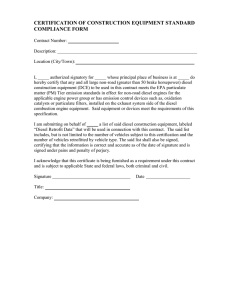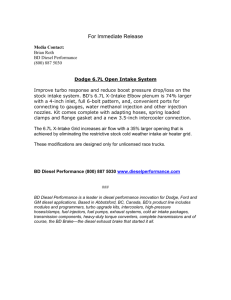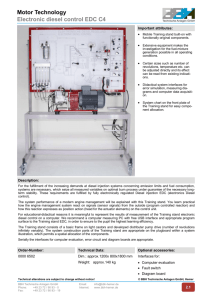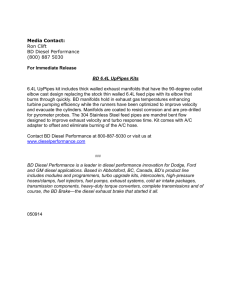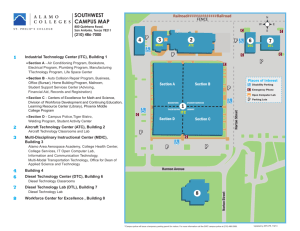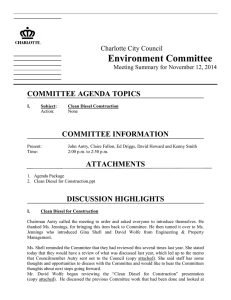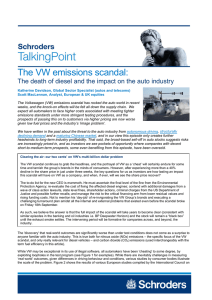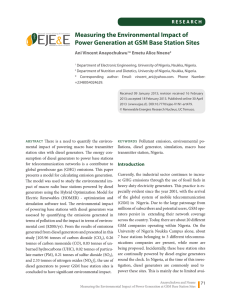Environment Committee Wednesday, November 12, 2014; 2:00 – 3:00 p.m.
advertisement
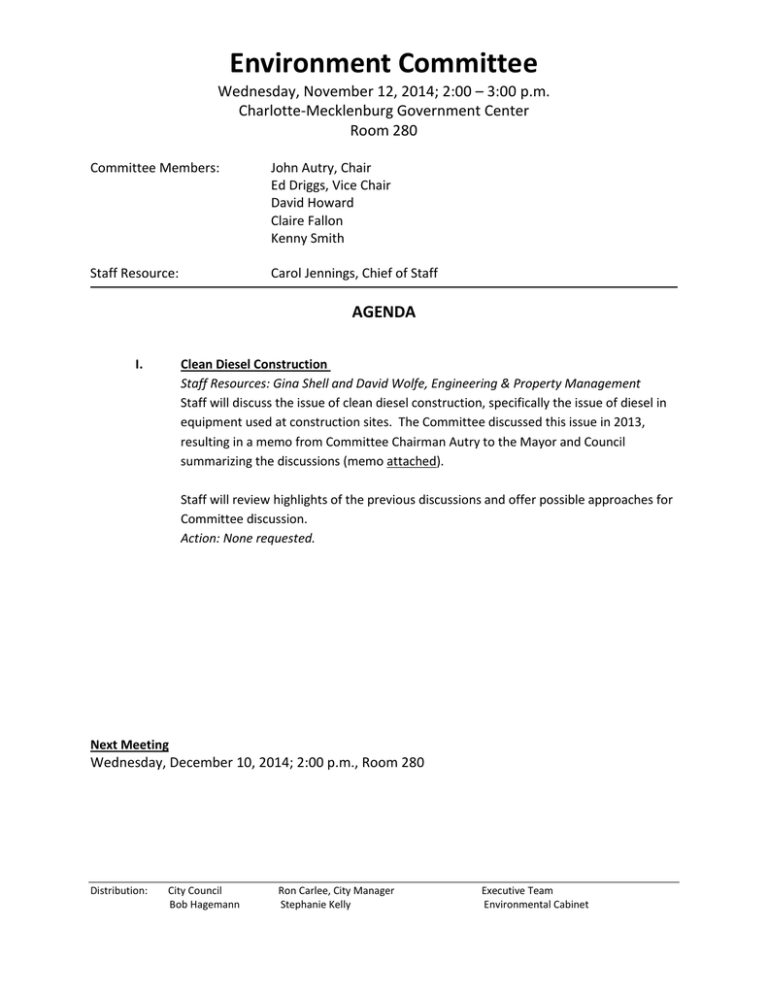
Environment Committee Wednesday, November 12, 2014; 2:00 – 3:00 p.m. Charlotte-Mecklenburg Government Center Room 280 Committee Members: John Autry, Chair Ed Driggs, Vice Chair David Howard Claire Fallon Kenny Smith Staff Resource: Carol Jennings, Chief of Staff AGENDA I. Clean Diesel Construction Staff Resources: Gina Shell and David Wolfe, Engineering & Property Management Staff will discuss the issue of clean diesel construction, specifically the issue of diesel in equipment used at construction sites. The Committee discussed this issue in 2013, resulting in a memo from Committee Chairman Autry to the Mayor and Council summarizing the discussions (memo attached). Staff will review highlights of the previous discussions and offer possible approaches for Committee discussion. Action: None requested. Next Meeting Wednesday, December 10, 2014; 2:00 p.m., Room 280 Distribution: City Council Bob Hagemann Ron Carlee, City Manager Stephanie Kelly Executive Team Environmental Cabinet MEMORANDUM December 2, 2013 TO: Mayor and City Council FROM: John Autry, Chairman Environment Committee SUBJECT: Environment Committee Discussion and Recommendation to Council Regarding Clean Diesel Construction At the Council meeting on August 26, 2013, Council approved my request to refer the topic of Clean Diesel Construction to the Environment Committee. The topic of Clean Diesel Construction refers to efforts to minimize the health and climate impacts from diesel engine emissions associated with construction activities. Diesel engines power many types of construction equipment such as backhoes, loaders, and graders. Their emissions include fine particulate matter and nitrogen oxide which contributes to ground-level ozone. Our Committee discussion, as intended, was limited to diesel emissions from equipment used by City staff in service provision and by contractors working on City-funded construction projects. Our discussion was not intended to address all construction-related diesel emissions in Charlotte. The Environment Committee received three informative presentations from staff and also heard from Dr. Lawrence Raymond, MD, ScM, Department of Family Medicine & Corporate Health & Wellness, Carolinas HealthCare System; Dr. Stephen Keener, Mecklenburg County Medical Director; and Ted Hogan, Program Manager, Eastern Research Group, Inc. (Consultant to the Air Quality and Climate Change Work Group under the “CONNECT Our Future” Regional Initiative). The Committee also received comments from representatives of two current City contractors, one large firm and one small business enterprise. The following bullets summarize some of our conclusions: • Diesel emissions are a known health concern; however, Mecklenburg County air quality is improving each year. • Private contractors generally support low-cost diesel emission reduction strategies such as anti-idling policies and equipment maintenance, but they have concerns about potential requirements or incentive programs aimed toward the replacement of older equipment. • There would be a significant cost to the City to upgrade all City-owned diesel equipment. • There would be a cost impact to the City to monitor and enforce any new contractor • • requirements or incentives. There are legal considerations and risks to be weighed prior to establishing requirements. The regional “CONNECT” initiative may develop strategies to encourage cleaner equipment. After three meetings on the topic, the Committee voted 3 to 2 (Autry, Pickering, Howard for; Fallon, Dulin opposed) to submit this summary report to current and new Council members. The Committee asks that the topic be brought up during Environment Focus Area Plan discussions for the purpose of further exploration, including possible establishment of potential measures against benchmarks and possible funding for the replacement or upgrade of City-owned equipment. I appreciate the Council’s future consideration of this action and will be happy to discuss it further.
